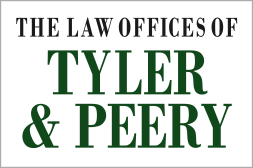Sometimes, car crashes in Texas only cause property damage or minor injuries. An individual might need a cast on a broken arm or a few stitches, but they will only have a few thousand dollars in total medical expenses. Other times, crashes are so severe that they leave someone in need of long-term medical care.
Individuals who lose a limb, who develop traumatic brain injuries or who injure their spinal cords in car crashes may require medical support for the rest of their lives due to their crash-related harm. How can someone calculate their future care costs, and how can they obtain an appropriate settlement for their needs?
Medical recommendations are where the process starts
After healthcare professionals diagnose someone with a specific injury or medical condition, they will create a treatment plan that will help someone recover or at least manage the symptoms related to their condition. That treatment plan can help the injured person and their family members create a working estimate for what their healthcare costs will likely be for the rest of their lives.
In cases involving catastrophic injuries such as spinal cord injuries, the lifetime medical expenses could be millions of dollars. Unfortunately for those involved in collisions in Texas, the policy limits that determine the maximum amount of compensation available are often far lower than the costs generated in a crash that necessitates long-term care. Some Texas drivers have a mere $25,000 in bodily injury coverage to pay for all of someone’s medical expenses after a collision.
Some people need more than insurance can cover
Negotiating for the maximum amount of compensation from insurance may not be enough. Sometimes, those recovering from significant injuries caused by a car crash will need to look into a civil lawsuit for the remainder of their expenses because car insurance will be insufficient for their needs. When a crash is the result of illegal behavior or negligence, the people affected could potentially hold the other driver accountable for any verifiable financial losses, including long-term care costs. There can occasionally also be grounds to pursue a claim against a business, such as when a driver was working when they caused the crash or when a defective vehicle park contributed to the wreck.
Obtaining an appropriate amount of compensation after a car crash often requires an understanding of what someone’s injuries will cost and an evaluation of the insurance policies available. Seeking legal guidance can help to clarify these realities.
